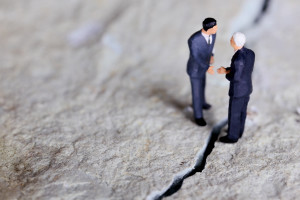
Have you ever been hurt so deep by a friend or family member that you didn’t want to reconcile? I’m thinking most of us have. It can be a very hard and difficult process. For me, reconciliation is about “bringing back together again.” It takes both parties to accomplish, but this focus is on us, not the other party. We can’t control what they do. Our motivation to reconcile is often linked to the situation and the person. The deeper the hurt, the harder it can be to ‘bring back together again.’
Recently I needed to apologize to some close friends. These are people very important to me. The situation isn’t as egregious as some, but because of my relationship with them I wanted to ‘bring the relationship back together again.’ While I am not responsible for the outcome of the reconciliation, my part is to apologize first.
I have faced many other situations where the stakes weren’t nearly as high, where an apology was the right thing to do. Some of those were difficult because I didn’t have a relationship with the other party, or they may have been equally at fault. Those were tougher because I could rationalize that it wasn’t all my fault, or they were someone I didn’t have a relationship with so I wasn’t as motivated. Yet, it was the right thing to do. It was hard, but necessary.
It is my experience that the hardest reconciliations are those between close friends or family members. Family is one of the strongest bonds there is. We are often taught that there is nothing more important than our family. Yet, we recognize in some situations that we are just different people from our sibling, or even our parent; if you weren’t family members you wouldn’t like them very much. Reconciling with that family member can be difficult. Perhaps the extreme is a family member that does something egregious or has a pattern of continually hurting you or another family member (i.e., stealing, addiction, abuse, etc.). When our trust/bond is violated by a ‘close’ friend, reconciling can be equally hard.
Those hurts that fracture our relationships test us, challenge us, and can help us. You might ask, “how can they help us?” They can help us by building our capacity to love, to forgive, to increase our tolerance; judge a little less.
If it’s helpful to heal a fractured relationship, what makes it so hard for us to reconcile in some situations? With family, it can be complicated. When my brother stole from my dad, I was stunned, hurt, disgusted. I didn’t want to deal with him. Yet, he was my brother and there is something about being in relationship with another, that can make it very hard not to reconcile.
Operating at the heart of reconciliation are the actions of apology and forgiveness. Without them, we are not able to ‘bring things back together again.’ Sometimes, it is harder to forgive than it is to apologize.
What can get in our way is our ego. When our ego is running out front in a situation, we would rather ‘hold a grudge’ or be ‘separated from’ than we would apologize or provide forgiveness. I have seen this last until one of the parties dies. Then it is too late, and suddenly, there is remorse – “why did I allow my ego to get in the way of our friendship.” “I wasted so much time, and for what?”
Another important dynamic is what happens to us if we don’t reconcile. Often, it is something we carry around that can affect our energy, and even our health. The situation, or person, becomes like a rain cloud over us. Periodically, we ‘rehash’ the situation without any resolution. It saps our ability to experience as much joy in life as we might.
Being willing to reconcile often requires us to be humble. Ego doesn’t like humility. If we can push ego aside, we have an opportunity to learn, to become better, and put some of our relationships back together.
Do you have a relationship that needs healed? Is there one where reconciliation would be a good thing? What would it take from you to get there? What would you gain if you were able to reconcile? If not now, when?
Reconciling with my brother happened several years ago. I had to put away my ‘holier than thou’ attitude (How dare you do this to our father!) and be willing to allow love to flow again. It was not easy, but I was glad we were able to reconcile because it allowed us to have some good times before he passed. As the saying goes, ‘life’s too short.’
My final reflection is that we have a lot of fractures in relationships – politics, churches, the world. We were built to be in relationship with one another. The blessing of aging is that we can focus more on the people that give us energy and hang with them more. My hope for you, for me, for our world is that we find a greater capacity to love one another, and to takes steps to heal that which is broken and important.
To a better you…
Jim
